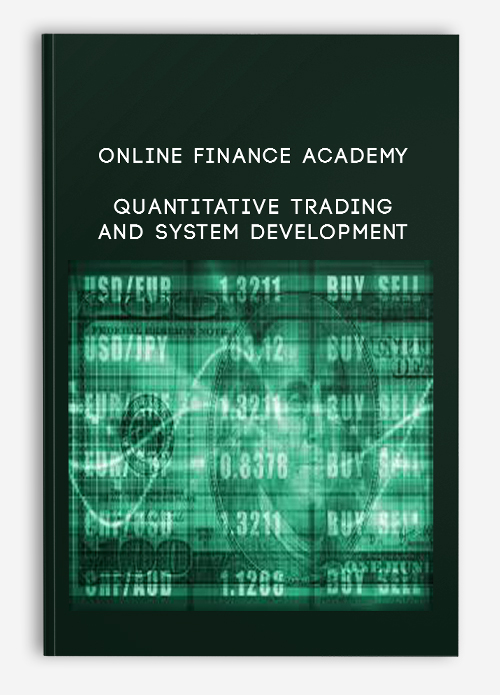
Over time, complex mathematical models were built to assess the profitability of a trade. Financial markets are some of the most dynamic entities that exist.
Steps to Becoming a Quant Trader
These are often only gained on a postgraduate research course (such as a PhD) in a purer research field as such Mathematics, Physics, Engineering or Computer Science (which is what MFEs can lead to). As finance is being used to meet the demand of the modern, global economy, risk must be considered. When people refer to quants in investment banks, desk quants are usually what they have in mind. Desk quants work with banks’ traders to create statistical models to analyze trading book risks and identify opportunities to create complex derivatives to help clients.
They also create models that create strategies to direct trading decisions and that make traders https://www.youtube.com/results?search_query=%D1%82%D0%BE%D1%80%D0%B3%D0%BE%D0%B2%D0%B0%D1%8F+%D0%BF%D0%BB%D0%B0%D1%82%D1%84%D0%BE%D1%80%D0%BC%D0%B0 more efficient. A computerized quantitative analysis reveals specific patterns in the data.
What does a quantitative trader do?
Quantitative traders trade based on quantitative analysis which rely on mathematical computations and number crunching to identify trading opportunities. For buy side, they develop quantitative models to predict securities prices. Then, they formulate and automate the strategies after thorough testing and optimization.
What do quantitative traders do?
Quant models always work well when backtested, but their actual applications and success rate are debatable. While they seem to work well in bull markets, when markets go haywire, quant strategies are subjected to the same risks as any other strategy. Lucrative https://www.google.ru/search?newwindow=1&biw=1434&bih=742&ei=n_AJXvGZL6WBk74P5LaVkAQ&q=%D1%84%D0%BE%D1%80%D0%B5%D0%BA%D1%81+%D0%BF%D0%BB%D0%B0%D1%82%D1%84%D0%BE%D1%80%D0%BC%D0%B0&oq=%D1%84%D0%BE%D1%80%D0%B5%D0%BA%D1%81+%D0%BF%D0%BB%D0%B0%D1%82%D1%84%D0%BE%D1%80%D0%BC%D0%B0&gs_l=psy-ab.3..0l3j0i22i30l7.191588829.191593656..191593910…7.0..2.270.1827.14j4j1……0….1..gws-wiz…..0..0i131j0i10i1i67i42j0i67.qUq-vbi0_MI&ved=0ahUKEwix5Yffst3mAhWlwMQBHWRbBUIQ4dUDCAo&uact=5 salaries, hefty bonuses, and creativity on the job have resulted inquantitative tradingbecoming an attractive career option. Quantitative traders, or quants for short, use mathematical models to identify trading opportunities and buy and sell securities.
How much do quantitative traders make?
The average salary for a Quantitative Trader is $147,103 per year in the United States. Salary estimates are based on 67 salaries submitted anonymously to Indeed by Quantitative Trader employees, users, and collected from past and present job advertisements on Indeed in the past 36 months.
The influx of candidates from academia, software development, and engineering has made the field quite competitive. In this article, we’ll look at what quants do and the skills and education needed. There is a reason Quants have become sought after in the world of finance, especially trading. Back in the day, manual traders used to apply technical analysis tools as well as fundamental analysis to gauge whether the stock is worth investing or not.
- Quantitative analysts design and implement complex models that allow financial firms to price and trade securities.
- As such, MFE courses are heavy on stochastic calculus, Monte Carlo methods, interest rate modelling and risk management techniques.
- Quantitative trading, at the top tier, requires a significant background in software development and econometrics, signals analysis and machine learning techniques.
- Unfortunately this is not the skillset that many quantitative funds are after.
Job openings for Quantitative Trader

If the model is right, the discipline keeps the strategy working with lightning-speed computers to exploit inefficiencies in the markets based on quantitative data. The models themselves can be based on as little as a few ratios like P/E, debt-to-equity, and earnings growth, or use thousands of inputs working together at the same time. Quantitative investment strategies have evolved into complex tools with the advent of modern computers but the strategies’ roots go back over 80 years. They are typically run by highly educated teams and use proprietary models to increase their ability to beat the market. There are even off-the-shelf programs that are plug-and-play for those seeking simplicity.
Quantitative analysts design and implement complex models that allow financial firms to price and trade securities. As such, MFE courses are heavy on stochastic calculus, Monte Carlo methods, interest rate modelling and risk management techniques. https://forexarena.net/ Unfortunately this is not the skillset that many quantitative funds are after. Quantitative trading, at the top tier, requires a significant background in software development and econometrics, signals analysis and machine learning techniques.
Quantitative traders apply this same process to the financial market to make trading decisions. Quantitative trading has grown to become a significant industry in the last ten years. The availability of data, sophistication of tools and speed https://forexarena.net/the-business-of-venture-capital-insights-from-leading-practitioners-on-the-art-of-raising-a-fund-deal-structuring-value-creation-and-exit-strategies/ of computation has opened up the market not only to more nimbler startup quant funds, but also to the retail algo trader. This trend has created large numbers of global quant analyst, software engineer and quantitative trading roles.
What is Quantitative Trading
It is only likely to continue as more markets emerge and new tradeable instruments are brought out. In REVIEW Stock Market Crashes the “back office,” quants validate the models, conduct research, and create new trading strategies.
For banks and insurance companies, the work is focused more on risk management than trading strategies. Front-office positions are typically more stressful and demanding but are better compensated. In the financial world, risk management is the process of identification, analysis and acceptance or mitigation https://www.bing.com/search?q=bookkeeping&go=Поиск&qs=n&form=QBRE&sp=-1&pq=bookkeeping&sc=5-11&sk=&cvid=4C6F1478E53347A29CEC05BDE209BF5F of uncertainty in investment decisions. Risk management occurs anytime an investor or fund manager analyzes and attempts to quantify the potential for losses in an investment. While the overall success rate is debatable, the reason some quant strategies work is that they are based on discipline.






